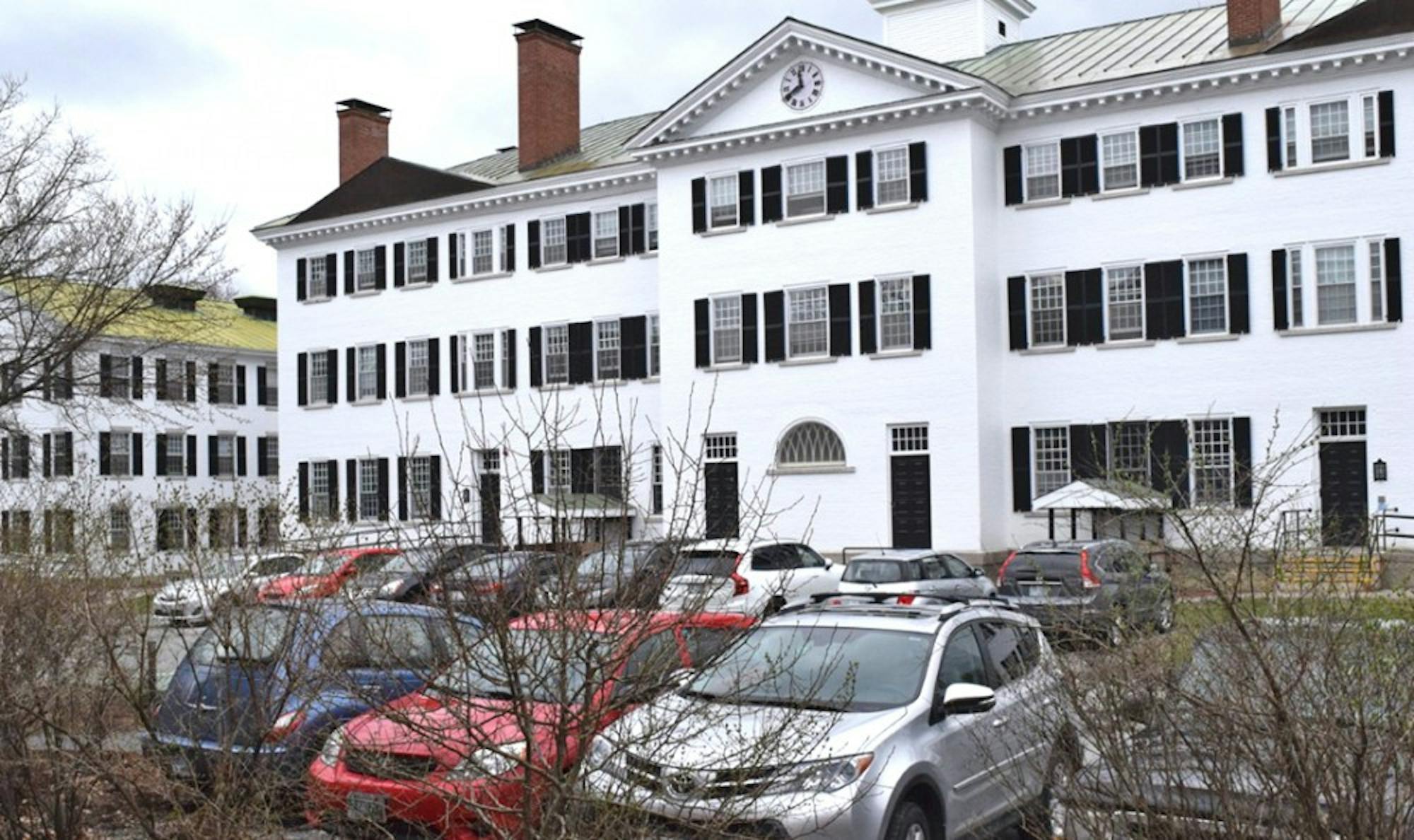A couple of weeks ago, Scotty Whitmore ’15 was surprised to find a parking ticket from Dartmouth Parking and Transportation Services addressed to his father in his mailbox. Whitmore visited campus this past February but drove his father’s vehicle, which is not registered with the College. Whitmore guessed that officers might have traced the vehicle back to his father by inspecting the vehicle’s registration or license plate. Michael Baicker ’17, who has also been ticketed multiple times by the College, said that Whitmore’s experience might reflect a change in Dartmouth Parking and Transportation Services toward more aggressive enforcement of existing parking violation penalties.
In an email statement, director of Parking and Transportation Services Patrick O’Neill denied that his department has changed the way it enforces parking violations. In a subsequent interview, O’Neill said that the College hired two new parking officers last July.
Baicker said that he interprets Dartmouth Parking and Transportation Services’ hiring of two new parking officers to mean that the College is more determined to identify and punish parking violations. He also cited the Colleges’ hiring of O’Neill, who recently joined the College and formerly worked for the Hanover town parking division, as possible evidence of a change in departmental attitude. He added that he formed his belief based on the College’s new emphasis on ensuring that all student vehicles are registered with the College, regardless of whether or not students live on campus.
Baicker said that based on the experiences of him and his friends, he believes ticketing has increased significantly. Violations that would not have been punished in prior terms appear to be punished more often now, he said.
O’Neill said that parking ticket revenues have increased this year compared to previous years. In his email, he wrote that his department has begun charging late fees for violation fees to ensure that they are paid on time. The fee is $10, with the town of Hanover also charging $10 late fees for parking penalties. He also explained that while he was not employed by Dartmouth when his department increased parking fees for A-lot, a parking lot for undergraduate students, the College likely increased fees to pay for infrastructure improvements. From 2015 to now, the cost of a parking permit for one term increased from $42 to $75.
Baicker recounted one experience when he received two different tickets within four hours of each other for a single parking violation. He said that upon appealing the officers’ decision to issue two tickets, Parking and Transportation Services agreed to cancel one of the two.
Jared Gerbino ’20 said he received a $50 ticket this term for parking outside of his residence hall for approximately 10 minutes without a permit while he went inside to retrieve his backpack. Gerbino said it was obvious that he did not intend to stay in the parking spot for an extended period of time because the car’s windows were open and his phone was inside. According to the College’s parking rules as of June 2016, any vehicle parked in A-lot or off-campus parking spots without a permit would be fined $50. In Hanover, people who park their cars without permits are fined $30.
Addressing Whitmore’s suspicions that the College uses vehicle registrations or license plates to trace vehicles back to their owners when those vehicles are not registered with the College, O’Neill explained that the College uses a vendor to obtain owners’ contact information when unregistered vehicles accrue citations. The contracted vendor identifies the owners of the unregistered vehicles by using state motor vehicle registry data.
“This is a common practice among colleges across the country,” he wrote.
Chief of the Hanover Police Department Charlie Dennis said that his department is not involved in the enforcement of parking violations that occur on Dartmouth’s private property.
Dennis also said that his department imposes a $10 fine on drivers who overstay their metered parking spaces or park without putting money into the meter. This fine is half of the $20 that Parking and Transportation Services imposes. Similarly, the town charges $50 for a towing charge, whereas the College charges $200.
Baicker said that the College’s high parking fines and what he perceived to be more aggressive enforcement of parking violations might encourage some drivers to park on town property instead of on College property. Dennis acknowledged this possibility, but said that other factors, such as convenience, might also affect a person’s decision to park on town property or College property.




